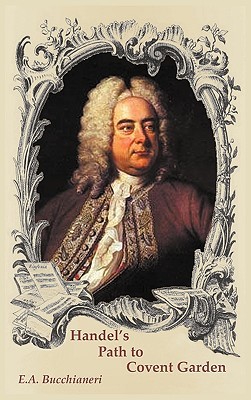A big thank you to Randall Radic for posting the following review on BlogCritics.org about my work, Handel's Path to Covent Garden.
 "Most music lovers go ga-ga over Handel’s famous oratorio ‘Messiah,’ as
well they should. However, what most music lovers don’t know is that
Handel established his fame upon the bedrock of Italian opera. Handel
wrote many operas. During one twelve month span, while at the Royal
Academy of Music, Handel wrote three operas, Giulio Cesare, Tamerlano,
and Rodelinda. All three were big hits and wildly successful at the box
office.
"Most music lovers go ga-ga over Handel’s famous oratorio ‘Messiah,’ as
well they should. However, what most music lovers don’t know is that
Handel established his fame upon the bedrock of Italian opera. Handel
wrote many operas. During one twelve month span, while at the Royal
Academy of Music, Handel wrote three operas, Giulio Cesare, Tamerlano,
and Rodelinda. All three were big hits and wildly successful at the box
office.In 1728, just as Handel’s contract with the Royal Academy expired, Italian opera fell out of vogue. The listening public decided they preferred the English style of opera. Still, Handel kept the faith. He started a new company, going into partnership with John Jacob Heidegger, who was the manager of King’s Theatre in Haymarket. Handel and Heidegger continued to produce Italian operas successfully for a few years. Then in 1733, a rival opera company – the Opera of the Nobility – opened for business, bringing in such superstars as Johann Adolf Hasse, Nocolo Porpora, and Carlo Boschi, who was better known as Farinelli. Handel and Heidegger couldn’t vie with such big names. Their venture effectively failed and Handel and Heidegger parted ways.
Instead of retiring, as most thought he would, Handel moved on to Covent Garden, where he joined up with John Rich. For three years, the two impresarios struggled financially and artistically. This period of adversity – from 1734 to 1737 – and how it changed Handel’s life, career, and fortune is the subject of E.A. Bucchianeri’s remarkable book, Handel’s Path to Covent Garden.
Buccianeri examines the intrigues, back stabbings, jealousies, and rivalries that existed at the Royal Academy of Music. The examination reveals that, as in today’s music world, egos and money are greater motivators than musical expression. To put it simply, everyone was caught up in power plays, trying, like a bunch of spoiled brats, to get their way. It makes for amusing reading, especially as it took place almost 300 years ago.
Of particular interest is John Rich’s arrangement with Handel.
According to Bucchianeri, unlike most people in his position, John Rich
wasn’t motivated by ego or money. “Rich aspired to succeed in overcoming
the deficiencies in Italian opera.” Therefore, Rich disregarded “a
practical business approach on this one project, he may have decided to
afford every opportunity to Handel,” who he recognized as England’s
“best composer.”
The result of this “opportunity” was Handel’s growth and change as a
composer. Bucchianeri relates this adaptation in detail, using the
evolution of Handel’s opera Ariodante’ to illustrate Handel’s genius and creativity. For one thing, Ariodante
had no magical content, which meant it was neither heroic nor
anti-heroic. In other words, Handel was doing something totally
different. The difference wasn’t shocking or scandalous. It was simply
unique. And, according to Bucchianeri, this distinctiveness eventually
found its way into Handel’s oratorios.
What makes Handel’s Path to Covent Garden so much fun to
read is the author’s scholarship and the author’s ability to express
that same erudition in simple language. In other words, although
Bucchianeri does occasionally get technical, Handel’s Path to Covent Garden
is a book for the average Joe or Susie. One doesn’t have to have a
musical background or a doctorate to enjoy the book. At the same time,
the book is just technical enough to appeal to music lovers. For the
latter group, the book fills in a gap surrounding Handel’s life and
work.
On the Read-O-Meter, which ranges from 1 star (terrible) to 5 stars (delightful), Handel’s Path to Covent Garden comes in at 5 stars.
Download free chapter preview on Scribd
Where to get your copy, click here.
Download free chapter preview on Scribd
Where to get your copy, click here.

No comments:
Post a Comment